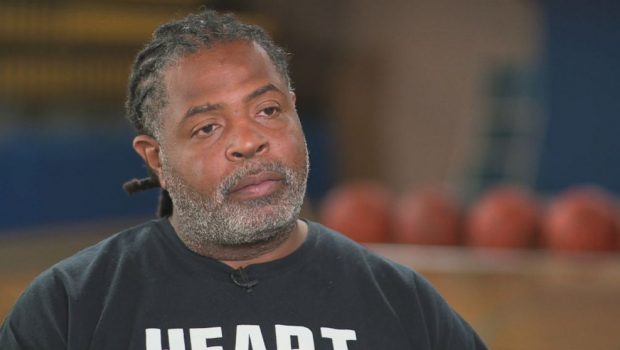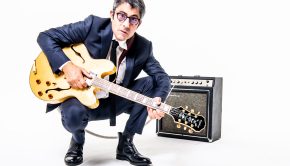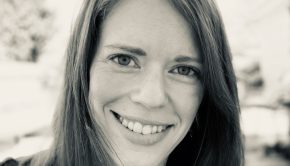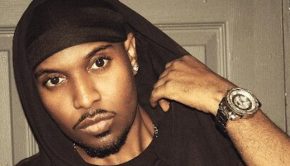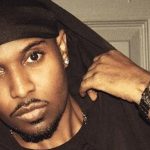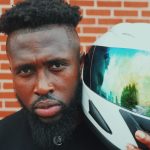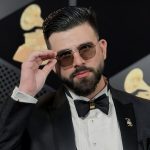Pt. 1: Newark Legend Shawn “OG” McCray Explains Giving Up the Street Life to Expand On Coaching and Mentoring Inner City Kids
Central High School basketball coach, Shawn “OG” McCray started coaching at the age of 16. He’s since become a Newark legend!
You hear the phrase, “Do you what you gotta do,” often. It’s overused sometimes. And in the case of, Shawn McCray, it was unnecessary. McCray was a standout basketball player. He also began coaching at the young age of 16. Taking kids not much younger than him to play in summer leagues. While keeping pace with the demanding schedule of playing hoops and coaching it, he earned himself a scholarship. In the midst of playing college ball and graduating college, the streets got a hold to, McCray. Hoops star equipped with a college degree, the moniker, “Do what you gotta do,” did not fit McCray, but it also didn’t stop him from exploring the street life of selling drugs. Eventually, McCray… also known as, “OG,” understood his hypocritical ways were counterproductive to the kids he was coaching. He spearheaded one of the most successful summer leagues on the east coast, Zoo Crew Basketball Program and left the streets behind. Several current and former NBA players competed in Zoo Crew Tournaments!
I was able to get, McCray to open up about his past experiences which led him to be the man he is today. His insight on his life and experiences explains why so many respects him!
Coach, you have had a major impact on a lot of youth in Newark, New Jersey and your journey seems to just be getting underway. Where do we start, my man? You are a Jersey hoops legend, went and played ball in college, only to be grabbed by the streets. Then you came out of that to become a coach and a mentor to many. Give us some details, my man.
Shawn McCray: It’s been a long journey, man. I don’t even know where to start. My street stuff didn’t start until I actually went to college. Before that, I was more focused on basketball. I actually started coaching when I was 16. I had my first team when I was 16-years old. I used to take the kids from my local projects and go to… it was like a development a couple of blocks from where I lived, we would walk over there, and we would play in a summer league over there. I was 16, and everybody that I was coaching was about 12 to 13-years old. The league was for kids who were 13. I took my brother and his friends, and we went over there and played in the league. We played 2-years. We won the championship my first year and we loss the championship my second year. So, at 16, I was coaching a bunch of kids and we were successful. We practiced at a local playground where I lived. It worked for me. I should’ve been working on my own game, but I was actually working with the kids in the community. I try to tell people… you get people that say, “He turned his life around to start working with kids,” and this and that, but even before I got into the streets, I was working with kids. So, this is something that I’ve been doing since I was 16. I’m 53 now. I’ve been coaching for 37-years here in the city of Newark. I coached Rec teams, then I did AAU and now I’m coaching at Central High School.
So, I’ve been doing this for a long time. This is something that has been embedded in me. I got off course for a little bit. I went to school. I had a successful college career. I probably could’ve did better, but I started falling into the streets my junior year of college. And then once I graduated, I kind of fell a little deeper into the streets. I graduated college in 1990 with a Sociology degree and a minor in Criminal Justice. But I didn’t get a job in my field into 1998. So, I was actually a college graduate in the streets when I should’ve been working in my profession. I chose to be on the street. It’s not like somebody forced me to do it. My friends used to come to my college games and they just looked like they were doing well. I just wanted a part of that action. It was fast money. I was still in school, but I was going home every weekend and standing in front of my building and making money while I was playing college basketball.
What was your wake-up call?
Shawn McCray: In 1997, I started my basketball program. I was coaching summer leagues, various teams up until 1996. Then, I took some kids where I was living at… because they shut our projects down and spread people throughout the city. So, we moved to another area in Newark. In 1996, I started the, Zoo Crew Basketball Program. I started with about 12-kids from the neighborhood. Whether they knew how to play or whatever. If they wanted to be involved, I let them because I saw there were no recreational programs in our neighborhood. Basketball was my thing, so I said I was going to start a basketball team. I actually took some kids to try out for an AAU coach that I used to play for when I was in high school. I think two of them made the team. You know how it is in AAU, if you’re not top echelon, you’re going to pay a fee to be on somebody’s team. So, these kids were inner city kids, at risk youth, single parent household. They didn’t have the money to pay to be on a team.
So, I had went back to my neighborhood and I was talking to a friend of mine and I was like, “Some of the guys got cut and some of them made it. Of course, some of them was good enough to make the team.” He said, “Why don’t you start your own thing?” I thought about it and reached out to some people to certify the name and this and that. I did all that and I started the, Zoo Crew Youth Program. I had kids from the ages of 13-16. I had about 12 to 20 kids from the local neighborhood. We were practicing at a playground right down the street from where I lived at the time. These kids were some rough kids, man. These were kids that nobody would deal with. Everybody was saying, “How are you working with these kids? They are disrespectful.” I like kids like that personally because they don’t know what’s out there. So, if you show they something more than the community they are in or the every day things going on in their community, if you take them somewhere and let them see something different, I think they will want to do more. So, we started traveling with AAU. We went to Akron, Ohio, we went to Minneapolis, Minnesota and Pennsylvania. The kids were like, “Yo, why we gotta go back? Why we can’t stay?” And I used to have to tell them that it’s only a weekend tournament. We gotta go back home. The money done ran out. So, they wanted me to find more tournaments. They wanted to travel. It made me understand that these kids really wanted to be out of their neighborhood. They don’t really wanna be where they are. I didn’t really have the funds, so we were selling candy on the highway here in Newark to raise money. A lot of these kids didn’t have the money. I fell back from selling drugs because I started dealing with the kids, and I didn’t want to be a hypocrite. I’m telling them not to indulge in the street life and here I am involved in the street life.
Did you cold turkey it?
Shawn McCray: In 1996, I was still doing it a lil bit, but not to the level I was doing it the years before that. So, what I did was, we started going on more trips and things like that, then in June of 1997, unfortunately a young lady in our area was murdered by the police. Her name was Dannette “Strawberry” Daniels. She was killed on the corner of where I was living. At the time the Zoo Crew was like the face of that neighborhood. We would throw block parties and we would have celebrities come to our block parties like, Queen Latifah, Chris Webber, Ol’ Dirty Bastard. We had Arnelle Simpson, OJ Simpson’s daughter out here. We had strong ties with Treach from Naughty By Nature. We had a following. We were some good guys, but some guys decided to get involved in the street life. I don’t want to say it was positive, but we were always mentally conscious guys. So, I’m trying to get you to understand, yeah, we were selling drugs and doing wrong in our community, but at the same time we were giving back to the community, if that makes sense. We would take care of the neighborhood to where there was no violence going on within our block. If kids didn’t go to school, they couldn’t be outside around us. They had to go to school or stay inside. We took care of the neighborhood. We threw block parties for like 5-years straight. We fed the whole community at those block parties and the block parties were successful.
In 1997 the young lady was killed by a police officer, Robert Leaks, and we stood up. I’m not sure if you’re familiar with Amiri Baraka, he passed away now, but he was an activist here in the city of Newark. He is a well-known poet. His son is actually the mayor now in the city of Newark, Ras Baraka. We marched and we protested. Mr. Baraka came down and riled up the community. We were the face of the community but at the same time, we were in the streets. We shouldn’t have mixed the streets with the politics. Because our name was big here in the city of Newark as far as drug dealers and not positive people in the community. Which we were positive, but like I said, we were doing whatever we were doing. We marched and then it became a clash between the Zoo Crew and the police. So, we started having issues. They would send officers up to where we were and say, “Stop protesting. You guys are not legit. You don’t need to be representing nobody in the community.” At the end of the day, we were human beings. A woman was killed unjustly and no matter if we sold drugs, we were killers, no matter what we did, we were human beings first. And this woman was murdered. That was June of ’97. They had a 6-month investigation into the Zoo Crew. In August of ’97, there was a federal raid of the Zoo Crew. You probably have Googled it. They locked up thirty something people. And there was probably about 6 people who were actually Zoo Crew members. I don’t know where the other 20-something people came from.
During the course of that, I had got a call at six something in the morning on that August date. I got a phone call saying that they are rounding up members of the Zoo Crew. I’m like, “What do you mean they are rounding up members of the Zoo Crew.” They said, “Well, the federal government did an investigation on the Zoo Crew and they are rounding people up.” So, what I did was I called a friend of mine… actually called two friends of mine. One of them his wife said they already came and got him and another one didn’t answer his phone. He was still on the run. That was my good friend, Terrence Dent, who was the focal point of the investigation. I went and sat in my living room, and I said, “This is it; I’m going to jail. All the stuff that I should have been doing positive as far as having a college degree and doing all the right things, I was in the streets.” So, I went and sat in my living room and waited for them to kick my door in, and my door never got kicked in. From that point on, I told myself, I gotta do what’s right. I gotta turn my life around, I gotta go get a job. I got a job working with The County Mental Health in February of ’98 and my daughter was born in September of 1998. I found out my girl at the time was pregnant. We had a Zoo Crew Clothing Store that my friend had, and I was the manager there. I kept that open from August to December of ’97 and then I went job searching and got that job in February of ’98. That’s what made me say this is it. I was still coaching kids. When they did the raid, they put a picture of me and the kids that we took on the front page of the paper, saying, “Zoo Crew funded a basketball program, they funded this and funded that,” which wasn’t true. But they used that picture and they had a bunch of other stuff in there. That’s what made me turn my life around. I just thought at that time… we talking about the federal government. If the Feds lock you up, most likely they got something on you. It’s going to take you a while to fight them.
My best friend was on the run until… I wanna say they caught him in March or April of 1998. He was on the run for 6-8 months. He got sentenced. His sentence was anywhere from 10 to 30-years. He took a plea, his lawyer told him he was going to get the 10, and they gave him 30. Never found drugs, he never killed anybody and that was his first conviction in his life. He was about 28 or 29-years old. He did 13 or 14-years. He’s home now. They found a loophole and gave him some time back. He’s been home about 10-years now. I just turned it around. I still was running my program. I started a summer league in June of 1998 and if it wasn’t for Covid-19, we would have been in our 22nd year. We usually start on Father’s Day. We didn’t have it this year because the city of Newark were not giving out permits. I ran that league 21-straight years. This is the first year I’m not having the league, so I’m sick. That was my baby. That was my project. We went from 8 to 10 teams to as many as 98 teams one year we had. We have 8 or 9 age divisions. At one point we were at 98-teams for a summer. Teams came from all over New Jersey. Kyrie Irving played in the league, Karl Anthony Towns, Kenneth Faried… Anthony Davis who is an offensive lineman for the San Francisco 49ers. We had a lot of guys that went through the league that made it to the NBA or went to major colleges. It solidifies competition. Kyle Anderson played in the league. When you start naming these people and they made it to the NBA, its like, “Okay, that’s a good league.” We had teams from all over New Jersey, team came down from Connecticut one year, teams from Brooklyn and the Bronx. The league was a very good league. Unfortunately, we couldn’t run it this year.
Tweet

